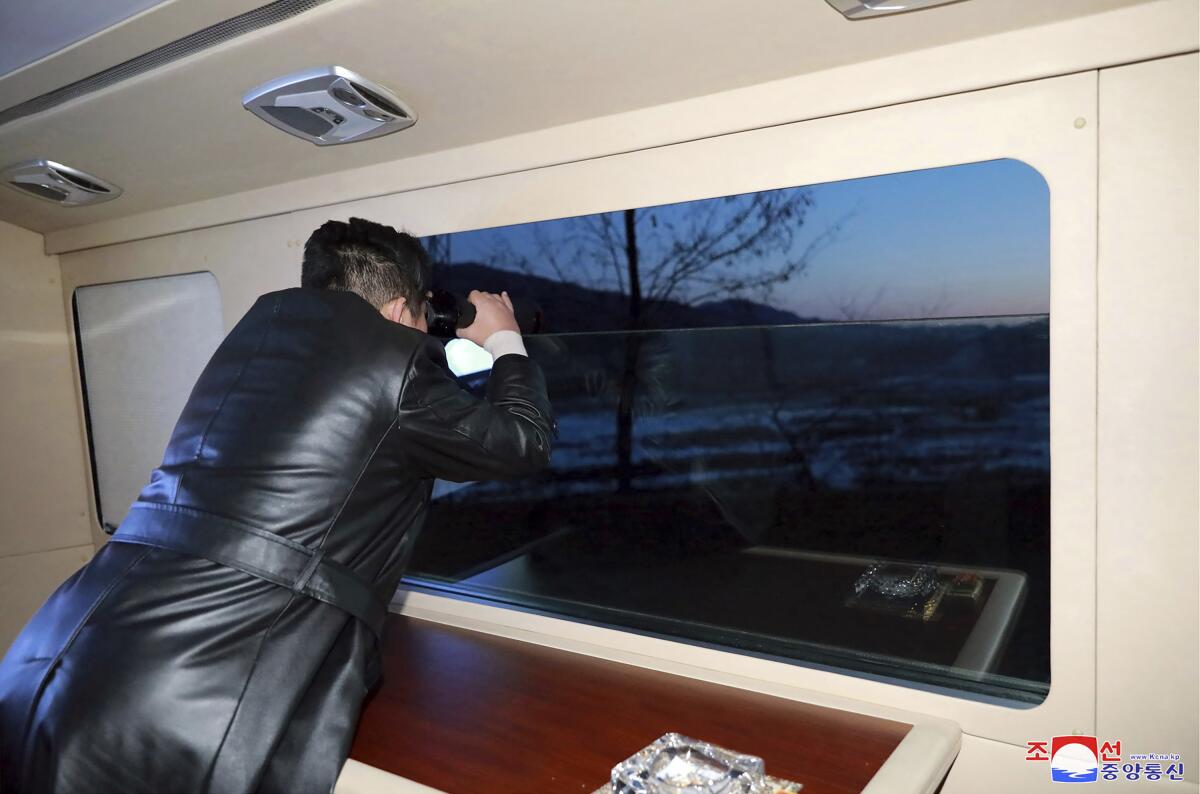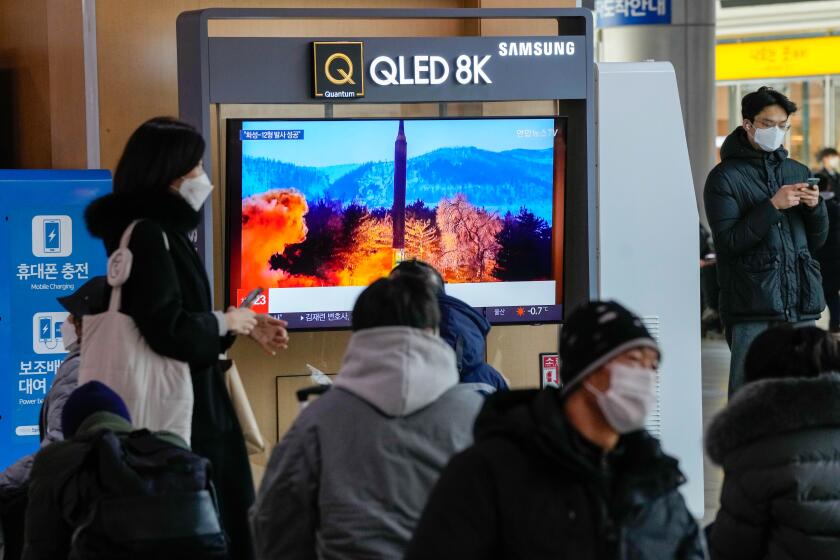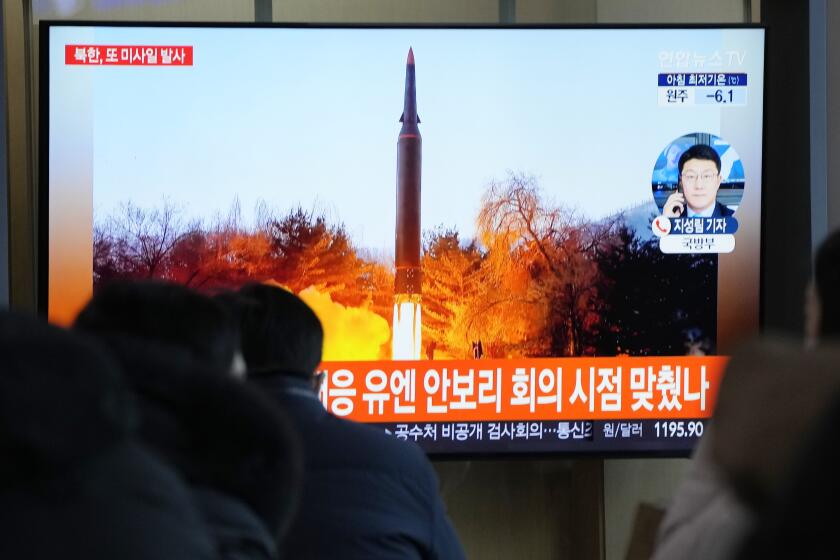North Korea seeks to produce material for nukes, U.N. experts say

- Share via
UNITED NATIONS — North Korea has continued to develop its nuclear and ballistic missile programs, including its capability to produce nuclear device components, in violation of U.N. Security Council resolutions, U.N. experts said in a new report.
The panel of experts said in the executive summary of the report obtained Saturday night by the Associated Press that there was “a marked acceleration” of Pyongyang’s testing and demonstration of new short-range and possibly medium-range missiles through January, “incorporating both ballistic and guidance technologies and using both solid and liquid propellants.”
“New technologies tested included a possible hypersonic guiding warhead and a maneuverable re-entry vehicle,” the panel said. North Korea also demonstrated “increased capabilities for rapid deployment, wide mobility (including at sea), and improved resilience of its missile forces.”
The experts said North Korea “continued to seek material, technology and know-how for these programs overseas, including through cyber means and joint scientific research.”
A year ago, the panel said North Korea had modernized its nuclear weapons and ballistic missiles by flouting United Nations sanctions, using cyberattacks to help finance its programs and continuing to seek material and technology overseas for its arsenal including in Iran.
The test launch is North Korea’s most significant in five years as it tries to pile more pressure on the Biden administration for sanctions relief.
“Cyberattacks, particularly on cryptocurrency assets, remain an important revenue source” for Kim Jong Un’s government, the experts monitoring the implementation of sanctions against the North said in the new report.
In recent months, North Korea has launched a variety of weapons systems and threatened to lift the four-year moratorium on more serious weapons tests such as nuclear explosions and ICBM launches. January saw a record nine missile launches, and other weapons it recently tested include a developmental hypersonic missile and a submarine-launched missile.
The Security Council initially imposed sanctions on North Korea after its first nuclear test explosion in 2006 and made them tougher in response to further nuclear tests and the country’s increasingly sophisticated nuclear and ballistic missile programs.
The panel of experts said North Korea’s blockade aimed at preventing COVID-19 resulted in “historically low levels” of people and goods entering and leaving the country. Legal and illegal trade, including in luxury goods,“has largely ceased” though cross-border rail traffic resumed in early January, it said.
The panel has previously made clear that North Korea remains able to evade sanctions and to illicitly import refined petroleum, access international banking channels and carry out “malicious cyber activities.”
U.N. sanctions ban North Korean coal exports and the experts said in the new report that although coal exports by sea increased in the second half of 2021, “they were still at relatively low levels.”
Iran and North Korea are eerily similar in five essential respects. Taking this into consideration could help the U.S. seal an Iran nuclear deal.
“The quantity of illicit imports of refined petroleum increased sharply in the same period, but at a much lower level than in previous years,” the panel said, adding that direct deliveries by non-North Korea tankers has ceased and only tankers from the North delivered oil, “a marked change of methodology” probably in response to COVID-19 measures.
The experts said North Korea also continues to evade maritime sanctions “by deliberately obfuscated financial and ownership networks.”
Although the humanitarian situation in the country continues to worsen, the panel said the almost complete lack of information from the country makes it difficult to determine the “unintended humanitarian consequences of U.N. sanctions affecting the civilian population.”
More to Read
Sign up for Essential California
The most important California stories and recommendations in your inbox every morning.
You may occasionally receive promotional content from the Los Angeles Times.












